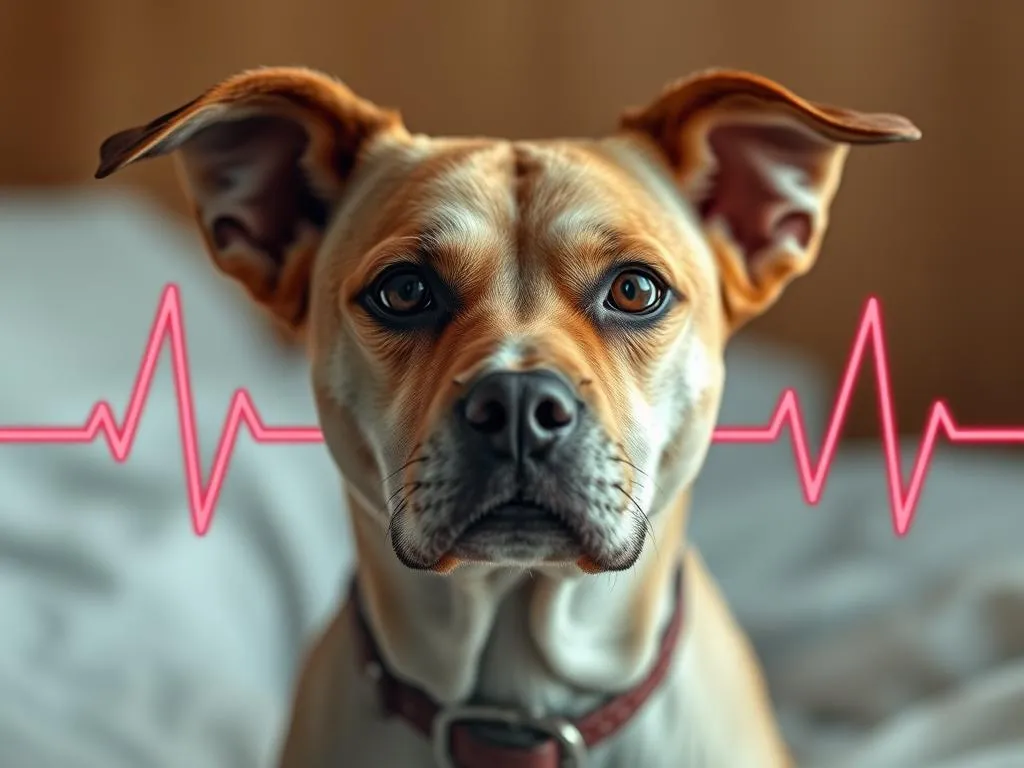
Introduction
An irregular heartbeat, known medically as arrhythmia, can be a serious concern for dogs. Arrhythmias occur when the heart beats too fast, too slow, or in an irregular pattern, disrupting the normal rhythm of the heart. Understanding the significance of canine heart health is crucial for any dog owner. A healthy heart doesn’t just support proper circulation; it also impacts a dog’s overall well-being, energy levels, and quality of life. Knowledge of what constitutes an irregular heartbeat, its causes, symptoms, diagnosis, treatment options, and preventative measures is essential for responsible pet ownership.
Understanding Irregular Heartbeat in Dogs
What is an Irregular Heartbeat?
An irregular heartbeat or arrhythmia can manifest in various forms. The most common types of arrhythmias in dogs include:
- Atrial Fibrillation: A rapid and irregular beating of the heart’s atria.
- Ventricular Tachycardia: A fast heart rate originating from the heart’s ventricles.
These irregularities can lead to inefficient blood circulation, which can be detrimental to your dog’s health.
Causes of Irregular Heartbeat in Dogs
Several factors can contribute to an irregular heartbeat in dogs:
-
Genetic Factors: Certain breeds are genetically predisposed to heart conditions. For example, Doberman Pinschers, Boxers, and Great Danes are more susceptible to various cardiac issues.
-
Medical Conditions: Underlying health problems like heart disease (such as dilated cardiomyopathy or mitral valve disease) can lead to arrhythmias. Other conditions, including hyperthyroidism and respiratory issues, may also affect heart rhythm.
-
Environmental Factors: Stress, exposure to toxins, and lifestyle elements can contribute to heart problems. A sudden change in environment or routine can sometimes precipitate an irregular heartbeat.
Symptoms of Irregular Heartbeat in Dogs
Recognizing the signs of an irregular heartbeat is crucial for timely veterinary intervention. Common symptoms to watch for include:
- Abnormal Heart Rate: This can be determined by feeling the pulse or observing irregularities in breathing patterns.
- Weakness or Lethargy: Dogs may become less active or exhibit fatigue during normal activities.
- Coughing or Difficulty Breathing: These symptoms may indicate fluid buildup or heart failure.
- Fainting or Collapsing: Sudden collapse or fainting should be treated as an emergency.
When to Seek Veterinary Assistance
If you notice any of the above symptoms, especially fainting or severe lethargy, it’s vital to consult your veterinarian immediately. Early intervention is key to managing potential heart issues effectively.
Diagnosis of Irregular Heartbeat in Dogs
Veterinary Examination
During a veterinary examination, the vet will conduct several checks to assess your dog’s heart health:
- Physical Examination: The veterinarian will examine your dog’s pulse and heart sounds, looking for irregularities.
Diagnostic Tests
To confirm an irregular heartbeat, several diagnostic tests may be conducted:
-
Electrocardiogram (ECG or EKG): This test records the electrical activity of the heart and helps identify arrhythmias.
-
Blood Tests: These can help determine thyroid levels and electrolyte balance, which are essential for heart function.
-
Chest X-rays or Ultrasounds: These imaging techniques can provide a visual assessment of the heart and surrounding structures, helping to identify any underlying conditions.
Treatment Options for Irregular Heartbeat in Dogs
Medication
Treatment for an irregular heartbeat may involve various medications:
-
Common Medications Prescribed: Antiarrhythmic drugs such as sotalol and digoxin are often used to regulate heart rhythm. Diuretics and other supportive medications may also be prescribed to manage heart failure symptoms.
-
Potential Side Effects: While medications can be effective, they may also have side effects. It’s important to monitor your dog for any adverse reactions and report them to your veterinarian.
Lifestyle Changes
Making appropriate lifestyle adjustments can significantly impact heart health:
-
Dietary Adjustments: Feeding your dog a heart-healthy diet, potentially low in sodium, can help manage heart conditions. Consult your vet for dietary recommendations tailored to your dog’s needs.
-
Exercise Recommendations: Regular, moderate exercise is essential. However, it’s crucial to tailor the intensity and duration based on your dog’s condition.
Surgical Interventions
In some cases, surgical intervention may be necessary:
-
When Surgery is Necessary: If medications are ineffective or if the arrhythmia poses a significant risk, surgical options such as pacemaker implantation may be considered.
-
Post-Surgical Care: Following surgery, ongoing monitoring and care are critical to ensure a successful recovery. Follow your veterinarian’s guidelines closely.
Prognosis and Long-term Management
Understanding the Prognosis
The prognosis for dogs with an irregular heartbeat varies widely depending on the underlying cause and the effectiveness of treatment. Factors such as age, overall health, and response to treatment play a significant role in determining the outlook.
Regular Monitoring and Check-ups
Routine veterinary check-ups are essential for dogs with heart issues. Regular monitoring allows for timely adjustments to treatment plans and helps catch any potential complications early.
Living with a Dog with Irregular Heartbeat
Caring for a dog with an irregular heartbeat requires dedication. Here are some tips for providing the best care:
-
Maintain a Calm Environment: Stress can exacerbate heart issues. Creating a peaceful home environment can help your dog feel more relaxed.
-
Follow Veterinary Advice: Adhering to medication schedules, dietary recommendations, and follow-up appointments is crucial for managing your dog’s health.
Prevention of Irregular Heartbeat in Dogs
Regular Veterinary Check-ups
Routine veterinary assessments are vital for catching heart issues early. Regular check-ups allow for monitoring of heart health and timely intervention if problems arise.
Healthy Lifestyle Practices
Implementing healthy lifestyle habits can significantly reduce the risk of heart issues:
-
Proper Nutrition and Weight Management: Maintaining a healthy weight through balanced nutrition is essential for your dog’s overall health and heart function.
-
Stress Reduction Techniques: Engaging in activities that reduce your dog’s stress, such as gentle play or relaxation exercises, can be beneficial.
Awareness of Genetic Risks
When considering a new dog, being aware of the breed’s predisposition to heart issues can guide responsible choices. Opting for breeds with a lower risk of heart problems can be a proactive measure.
Conclusion
Recognizing and addressing an irregular heartbeat in dogs is crucial for maintaining their health and quality of life. Understanding the causes, symptoms, diagnosis, treatment, and prevention of arrhythmias empowers dog owners to take proactive steps in their pet’s care. Ensuring regular veterinary visits and adopting a healthy lifestyle can significantly contribute to your dog’s heart health, allowing them to lead a happier, healthier life.
FAQs
What is an irregular heartbeat in dogs?
An irregular heartbeat, or arrhythmia, is when a dog’s heart beats too fast, too slow, or in an irregular pattern.
What are the common symptoms of an irregular heartbeat?
Symptoms include abnormal heart rate, weakness, coughing, difficulty breathing, and fainting.
How is an irregular heartbeat diagnosed?
Diagnosis typically involves a physical examination, electrocardiogram (ECG), and possibly blood tests or imaging.
What treatment options are available for dogs with irregular heartbeat?
Treatment may include medications, lifestyle changes, and in some cases, surgical interventions.
Can I prevent irregular heartbeat in dogs?
While not all arrhythmias can be prevented, regular vet check-ups, proper nutrition, and stress management can help reduce risks.









